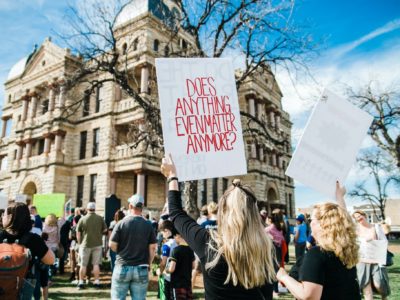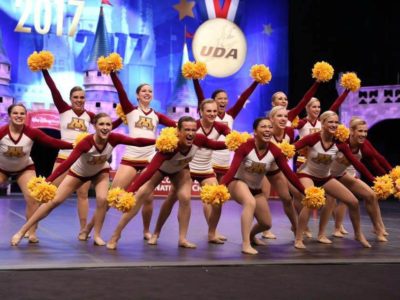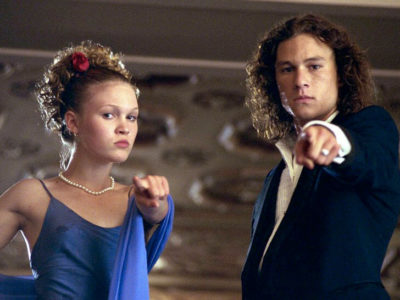In an era of pervasive inequality, injustice and polarization, students across the nation are doing what they’ve done for years: advocating for a better world. As agents of change, universities mirror students’ grievances in the political climate at any given time. Just as they happen in communities at large, protests on campus against injustices have become commonplace.
Read on for College Magazine’s top 10 most politically active colleges in the U.S.
10. University of California, Santa Cruz
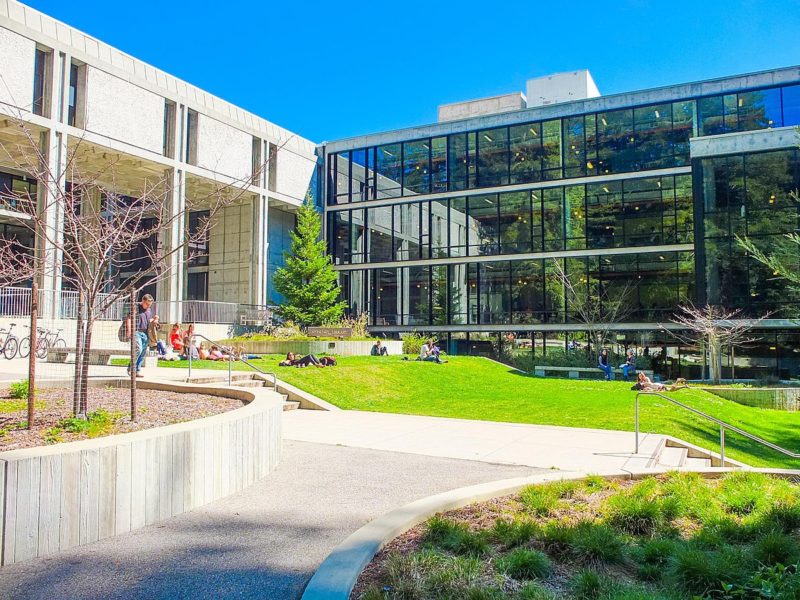
You may know the University of California, Santa Cruz for its breathtaking campus overlooking the Pacific Ocean. What’s lesser-known, however, is its political activism. With support from hundreds of undergraduate students, professors and workers across campus, UC Santa Cruz graduate TAs canceled regular teaching, grading, office hours and research until administrators met their demands for a cost of living adjustment this past February (COLA). “We are very critical of the school and UC administration, sometimes overly so. We demand that larger institutions are accountable and that the most vulnerable are taken care of. Our activism is also cultivated with a good relationship with the professors who also often deal with the poor administration,” second-year Matthew Moran said. In addition to COLA strikes, UC Santa Cruz’s dedication to political activism dates all the way back to the anti-Vietnam War protests in 1972, the creation of the Affirmative Action Coalition in 1995 and anti-war protests in 2003. A beautiful campus with laid-back people who care about politics and social justice? Yes, please.
9. Smith College
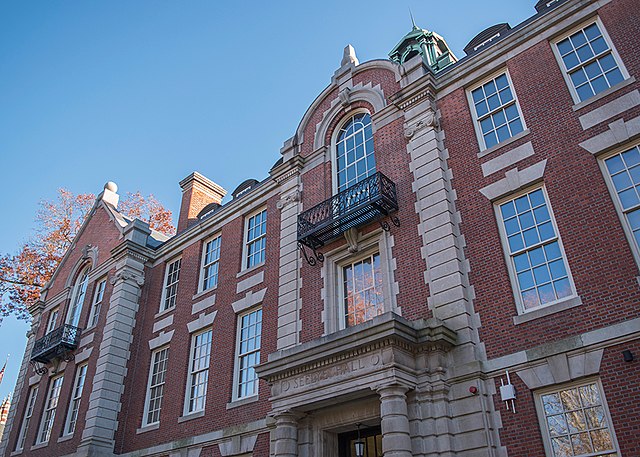
Don’t overlook Smith College, a women’s liberal arts school in Massachusetts. Not only did First Ladies Nancy Reagan and Barbara Bush graduate from Smith College, but the school has also been fighting for women’s equality in STEM as the first women’s college to offer an undergraduate engineering degree. At Smith, a lot of discussion among students center around politics. “Smith tends to slant pretty left so discussions tend to be more about specifics on leftist or democratic policy rather than arguments between parties,” said junior Emily Paule. Smith Democrats and Divest Smith College, major organizations at Smith, insert themselves in Smith’s political scene. “Divest has staged a couple decently large and successful protests, and succeeded in getting the President and the board to divest our assets from fossil fuels,” said Paule. Smith College, as a hotbed for female empowerment, even offers a specialized psychology course about political activism for women. Prominent female activists like Gloria Steinem, Loretta Ross and Miriam Yeung frequent the campus for forums and lectures and even attend an Activist-in-Residence position. Imagine catching Loretta Ross in between classes and just casually striking up a conversation with her. Wild.
8. Vassar College
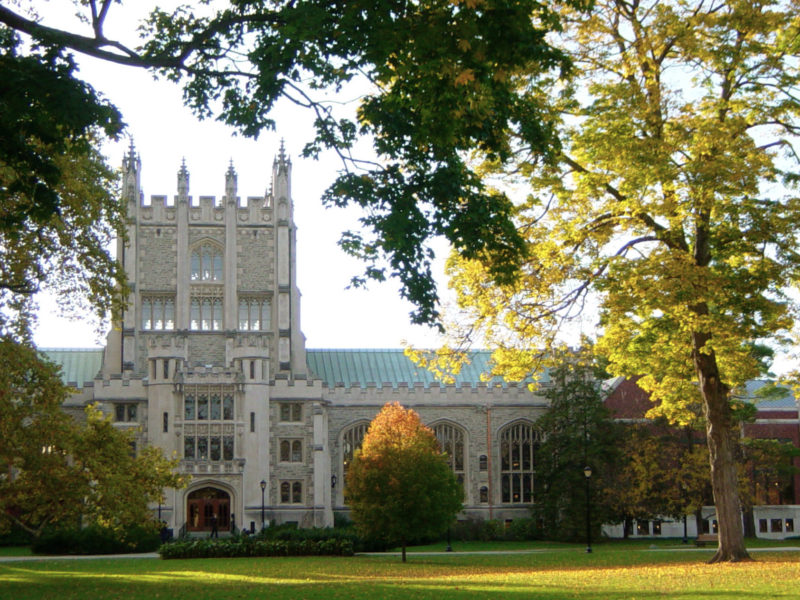
Although Vassar College leans mostly to the left, a sizable right population still gets their voices heard on campus. With an insatiable hunger for social justice-related classes, Vassar students attend classes, like Critical International Relations and The Politics of Modern Social Movements. with emphasis on interpreting historical and current events by applying social justice theory selected events.
Students’ passion for social justice materializes outside classrooms in the form of demonstrations. Notable protests include Vassar’s demonstration against the military’s “Don’t Ask, Don’t Tell” policy which resulted in six students getting arrested, a series of anti-Vietnam War protests in 1967, anti-Iraq War protests and the March for Women’s Lives in 2004.
Vassar students have been strong and committed for many decades. Vassar’s proportion of activist student groups, comprising roughly 30 percent of student organizations, exceeds other universities in the region, as well as the other Seven Sister Schools. Even campus dining facilities embrace elements of activism. The Vassar Animal Rights Coalition led a movement to implement the Meatless Monday program in all campus dining, which means dining places now prepare more meatless dishes each Monday.
Besides animal-related advocacy groups, Vassar has many identity-based, issue-based and ideology-based on-campus activism groups, like Feminist Majority Leadership Alliance, Multiracial and Biracial Students Alliance and Students for Justice in Palestine. Organizations like these enable students to advocate for what they believe in with kindred spirits.
7. Columbia University
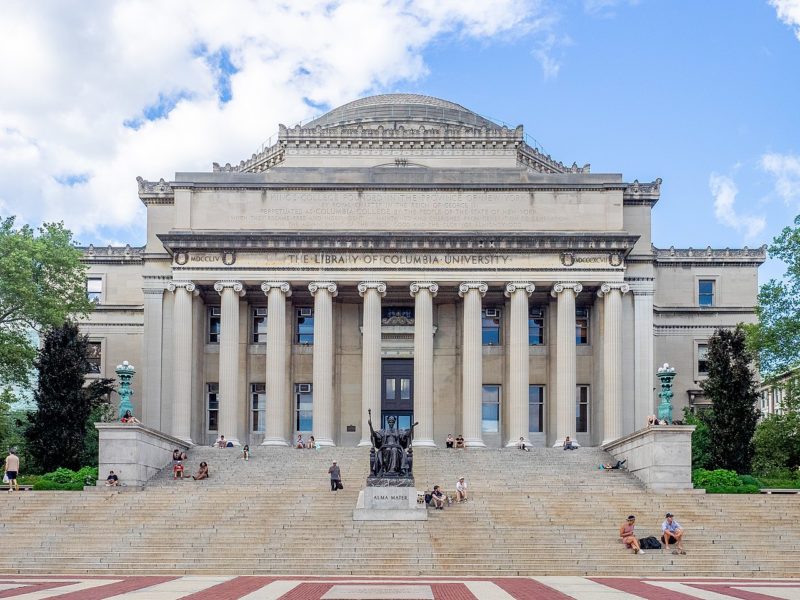
Columbia’s alumni include five founding fathers, three U.S. presidents, seven attorney generals, nine Supreme Court justices, 26 heads of state from around the world and numerous senators, representatives, governors and diplomats. Given the sizable population of politically engaged and informed students at Columbia, many students participate in political debates and discourse by contributing to The Current and The Columbia Political Review—two of the campus’s renowned journals. Some other active politically-inclined groups on campus include Columbia Political Union, Columbia University Democrats, Columbia University Libertarians, Columbia Sunrise Movement and Student Worker Solidarity.
Activism at Columbia reached a fever pitch in April 1968, culminating in a series of sit-ins at campus buildings and a tense and violent standoff between students, administrators and New York City police. Between then and now, many protests have ensued against a Pentagon weapons think tank, campus expansion, divestment from South Africa during Apartheid, sexual assault and beyond. With the presidential election right around the corner, you might be looking for ways to get involved with political organizations on campus. With the right alumni connections, location and campus vibe, Columbia gives you everything you need to channel your inner activist.
6. Georgetown University
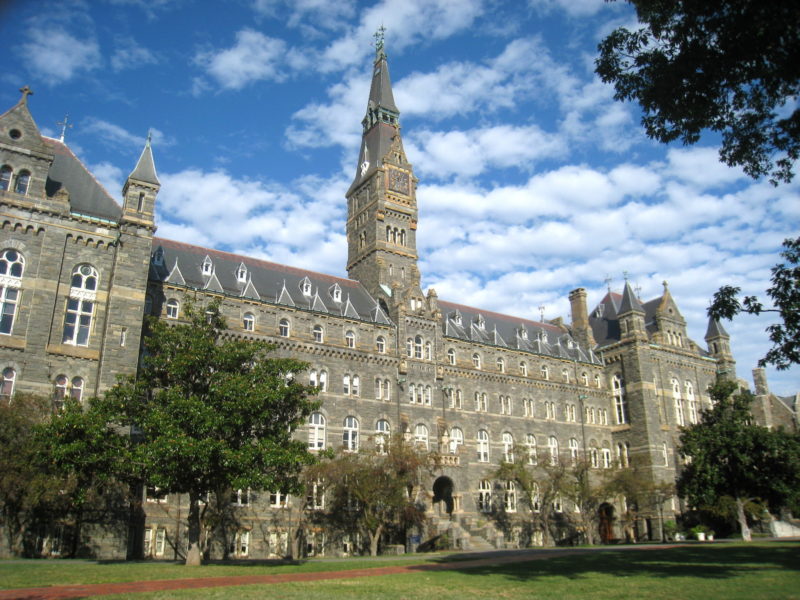
Politics at Georgetown starts with an obvious advantage: its stellar location in Washington, D.C. In protests of social injustices, students often take to Capitol Hill to strike and hear speakers from various organizations, as well as to gain the attention of the policymakers. Students looking to rock the vote can participate in on-campus organizations, and many work on the numerous political campaigns that operate within the city.
Some of these organizations include the Georgetown Democrats, which holds policy roundtables, volunteers for political campaigns, organize speaker events, phone-banks and text-banks for campaigns, as well as the Georgetown Republicans which boasts a membership of over 400 students and focuses on offering conservative perspectives on issues by inviting speakers and hosting debates with other organizations on campus.
Take Back the Night Week which occurs every year to protest against rape and sexual violence, in particular, attracts a large audience every year. A coalition of groups hand out facts and resource sheets to passersby on campus, open up forums for dialogue, hosts talks, screens movies about sexual assault, honors survivors and actively encourage the participation of Denim Day on campus.
Some other notable accomplishments of activist organizations include the cessation of sweatshop use in producing Georgetown-logoed apparel, a movement pioneered by the Georgetown Solidarity Committee. Georgetown Students for Fair Trade also successfully advocated for all coffee in campus cafeterias to be Fair Trade Certified. There is no shortage of political engagement at Georgetown. They’re just doing what they’ve been doing for years- fighting for justice.
5. George Washington University
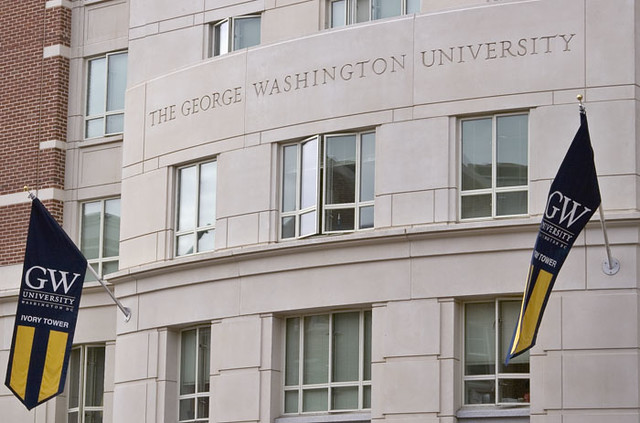
Located just a train ride away from Capitol Hill and the White House, students at George Washington University (GWU) can snatch internships at the American Foreign Policy Council, Human Rights Watch and even the White House Office of Administration. More than that, GWU students can hear high-profile figures speak like Pete Buttigieg, Julián Castro and Cory Booker on multiple occasions. “While the political climate at GWU is very lopsided towards liberal and progressive politics, there is still a great diversity of ideas and affiliations. The 2020 Democratic primary showcased this with many students on the left forming their own organizations to support their preferred candidate. Similarly, on the conservative side of politics, GWU College Republicans being the largest chapter of College Republicans in the country brings together so many people from across the country with different politics and beliefs,” said Patrick Burland, Director of Public Relations for the GWU College Republicans. Many student groups on campus deal with topical issues such as sexual assault, climate change and universal basic income, and host forums to incite discussion and debate on such issues. With a profusion of student orgs to join, everyone can find a place at GWU.
4. Oberlin College
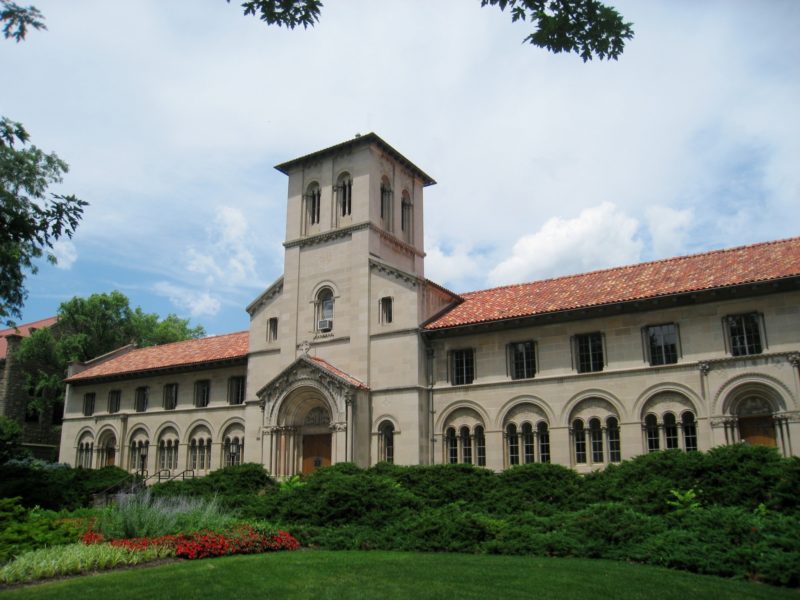
Oberlin puts the “liberal” in liberal arts college. Oberlin fosters students with a wide array of ideologies, most of which fall left of center to the left of left. This also allows us to build a community that is based on a set of shared values and uphold our community norms which helps a lot of people to feel more safe and respected who have faced exclusion and bigotry in the outside world,” said Ezra Andres-Tysch, Communications Chair for the Oberlin Democrats. First admitting African American students in 1835 and women in 1837, Oberlin has been known since its inception for progressive student activism. “There is a large emphasis on fixing systemic injustice and understanding the big picture behind isolated political events and movements,” Andres-Tysch said. In the 1960s, Memorial Arch became a rallying point for Oberlin’s civil rights and anti-war activists. Students participated heavily in Mississippi Freedom Summer, organized dozens of protests against the Vietnam War and vehemently opposed fracking in Ohio on various occasions, among many other activism efforts. You can bet Oberlin will be at the forefront of the fight for justice, earnestly continuing their long legacy of activism.
3. Harvard University
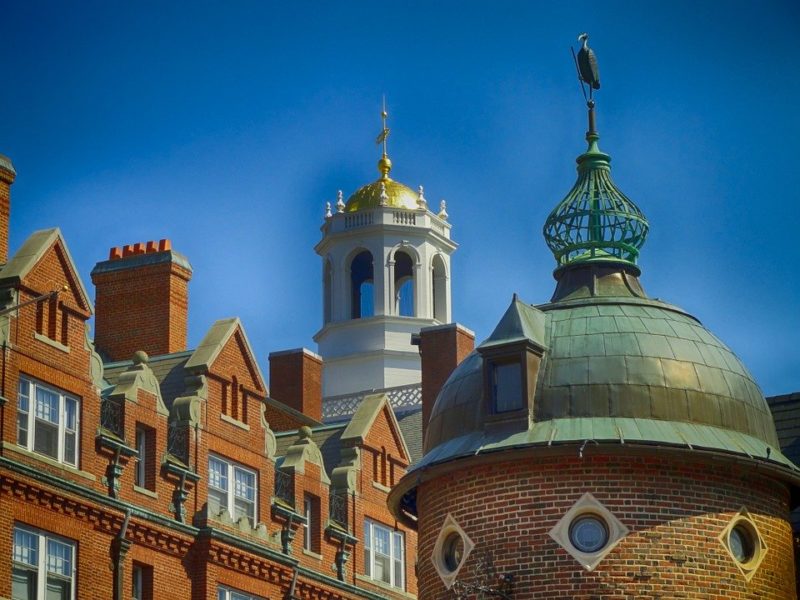
Harvard University, prestigious academically and highly esteemed, also tops for political activism. Dating back to the 17th century, Harvard’s student activism history is amongst the longest in the nation. With student groups and activists galvanizing around a plethora of issues—from workers’ rights to climate change to university administration—student activists and groups take on large and topical societal problems. Anti-war protests in 1970, opposition towards the South African Apartheid in 1984-85, Fossil Fuel Divest Harvard’s sit-in at the 136th Harvard-Yale football game… the list goes on and on. More recently in 2019, around 50 students occupied Harvard’s Office of Admissions and Financial Aid to demand the creation of an Ethnic Studies department.
On-campus student organizations help carry on Harvard’s history of political engagement. Beyond activities which foster discourse like the internationally recognized collegiate debate teams, Model United Nations and Model Congress teams, Harvard students also discuss politics through organizations like College Democrats, College Republicans, Harvard College Project for Justice, Harvard College Partners in Health Engage, Harvard International Relations Council and Harvard Undergraduate Alexander Hamilton Society. Harvard activism is not unprecedented; on the contrary, it continues a centuries-long legacy of student protest.
2. American University
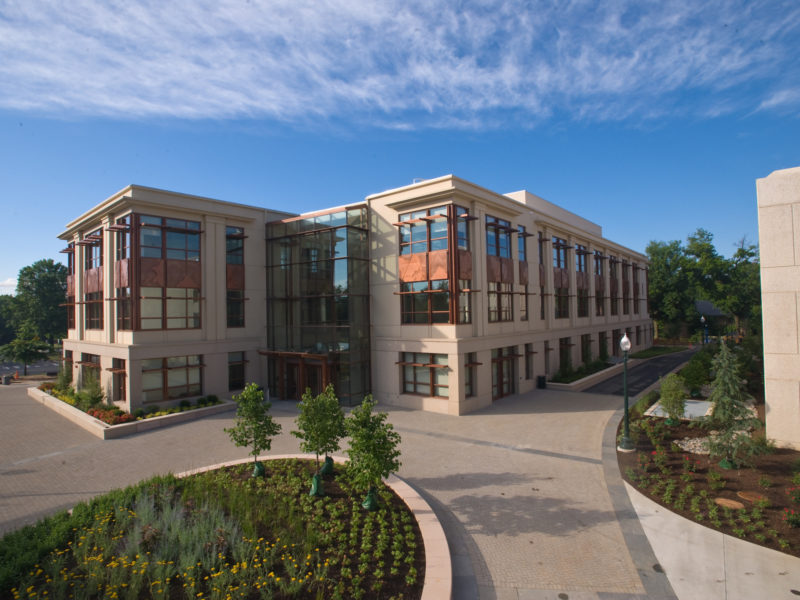
As an indispensable facet of the American University (AU) experience, activism shapes student life on and off campus. Students can incite change within federal offices across D.C. through internships with the Democratic National Committee, National Organization for Women and Office of the Attorney General, among other opportunities. They can also take their protests and demands to the White House. Politically-oriented student groups dominate roughly 10 percent of AU’s student organizations, and students throughout the university often find their way into the political realm one way or another.
On campus, the opportunities for political engagement are nearly endless. Besides the conventional College Democrat and Republican groups, students can join policy-centered organizations like the U.S. Foreign Policy Association, issue-centered groups like Students to End Abortion Stigma or Student Advocates for Native Communities and identity-based clubs like AU PRIDE. Having organized delegations to the March for Our Lives, staged die-ins for racism against African Americans and protested the Trump administration’s immigration policies outside the White House, AU students evidently live and breathe passion for politics.
1. University of California, Berkeley
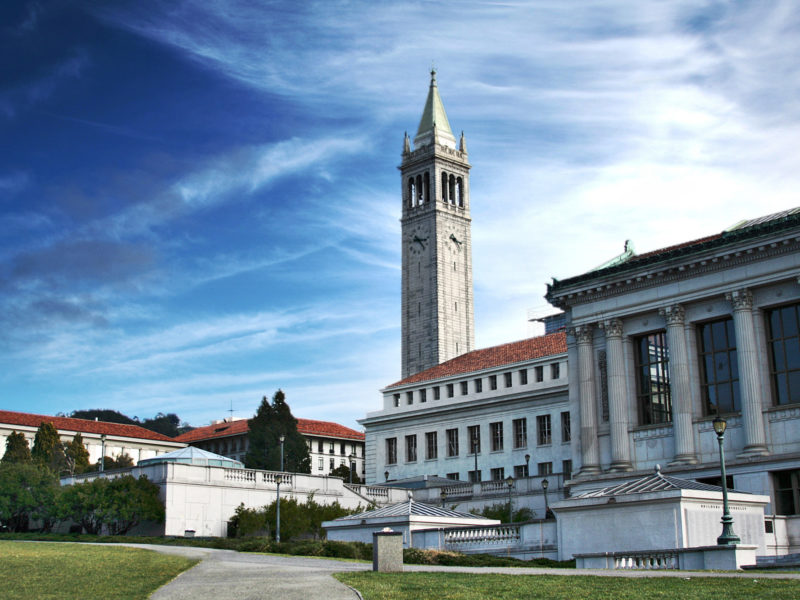
It’s hard to escape politics at Berkeley. Renowned for being America’s radical university, the University of California, Berkeley encourages learning that transcends the classroom walls. “You can’t really go a day without seeing activism or demonstrations. But Berkeley doesn’t force it on you, like if you’re politically uninvolved and just wanna do C.S. and graduate, you can,” second-year Abhi Vinchure said. Every day, Sproul Plaza buzzes with spirit and people speaking up about causes they care about. Students with a fiery passion for certain causes and who would like to make their voices heard belong at Berkeley.
With over 100 student-directed activism groups on campus, like Bears Against ICE, Progressive Student Association and Students Against Fascism and War, no political rock is left unturned. “On a good day, you could see things like Palestinian students and allies protesting against Zionists and Israel oppression etc. There’s always a lot of politically charged messages on Sproul,” Vinchure said. Located right by Sproul Plaza is Telegraph Avenue, an iconic place in the Bay Area known for being a conduit for Berkeley’s enthusiasm for political activism.
In 1969, Telegraph was the site of massive confrontation between police and protestors during the conflict over People’s Park which involved blockades, tear gas, one protester’s death and the National Guard. Having been the epicenter of numerous, a passion for politics embeds itself in history. Even in classrooms, professors critically examined politics. For instance, Sheldon Wolin, along with Hanna Pitkin, Michael Rogin, John Schaar, Norman Jacobson and others were instrumental in founding the Berkeley School of political theory. Also, gender theory and philosopher Judith Butler taught at Berkeley.
From demonstrations and strikes against fascism throughout World War II to the Free Speech Movement in the 1960s and the campaign for divestment from apartheid South Africa, UC Berkeley champions a long history of student activism. At Berkeley, you can revel in the fact that Michel Foucault, postmodernist philosopher, historian and former visiting professor at UC Berkeley, once walked the same halls you do.

